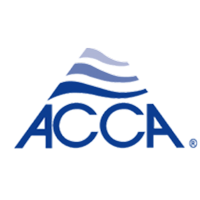Purchasing your first home is an exhilarating experience. You’re probably trying to keep track of a dozen things or more to ensure you’re making the right choice. We believe that understanding your future HVAC system is crucial. The property’s HVAC system represents a significant investment and source of potential long-term costs, illustrating why a detailed inspection is important for first-time homebuyers.
In this guide, we’ll outline seven tips for discovering all there is to know about a home’s heating and cooling setup. And if you want a more in-depth opinion from the pros, don’t hesitate to contact J & J Air Conditioning. Our seasoned technicians can help you compare your options with industry insights that are second to none.
1. Which Kind of HVAC System Does the Home Use?
Start by clarifying what kind of HVAC system the home has. Furnaces generally last longer compared to air conditioners, and some of the latest types of HVAC equipment like heat pumps feature average life spans that are even longer. Tracking down the make and specific model ensures you have a clear understanding of how much it might cost in upkeep over time.
2. How Long Ago Was the System Installed?
Another good idea is to find out how old the HVAC system is when you’re considering a potential new home. On average, HVAC systems last about 10-12 years. Having the knowledge of when it was installed helps you plan for possible repair needs or considerations if it might eventually stop working. Older systems are at a higher risk of problems, so planning ahead of time for a replacement unit might be needed faster than expected.
3. Does the System Have a Warranty?
Don’t forget to look into whether the HVAC system is covered by a warranty. If it is, you’ll appreciate how it can help with maintenance expenses. HVAC warranties often cover parts and labor, but specifics will vary. Review any terms you don’t recognize to make sure you fully understand your coverage and the likelihood of out-of-pocket costs.
4. When Was the Last Time It Received Maintenance?
Don’t forget to check the maintenance history of the HVAC system, if this kind of history is accessible. This kind of information can demonstrate if the repair needs are high or how often a tune-up was scheduled. Ask about records for key tasks like filter changes, which is a positive sign indicating regularly scheduled tune-ups.
5. Are You Aware of the System’s Energy Efficiency Ratings?
Finding a home that features an HVAC system with great energy efficiency isn’t just smart; it leads to lower utility bills and less of an impact on the environment. Try and find the seasonal energy efficiency ratio (SEER) ratings for air conditioning and the annual fuel utilization efficiency (AFUE) for furnaces. The higher the SEER rating, the more efficient the cooling over the whole season, while strong AFUE ratings mean the fuel is efficiently converted into useable heat.
6. Did You See Any Problems During Your Inspection?
Even without experience in HVAC systems, you can still take a moment to check out the HVAC system on your own. Watch closely for any concerning items that might have been overlooked. This includes strange noises, spots with uneven heating or cooling and attempts to hide any obvious damage.
7. Is an Experienced HVAC Technician Available to Help?
If you’re unsure about the overall state of the HVAC system, it’s beneficial to get input from certified HVAC professionals. They are skilled at identifying things you may not know about, like leaking coolant, wiring issues or flawed ductwork.
A Call with J & J Air Conditioning Simplifies Your Home-Buying Journey
Selecting your first home should be thrilling, and J & J Air Conditioning can ensure it stays that way. Get in touch with us at 254-505-3248. We can discuss how our HVAC services ease your mind, giving you what you need to make an offer with confidence.

